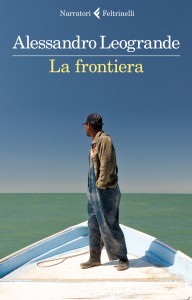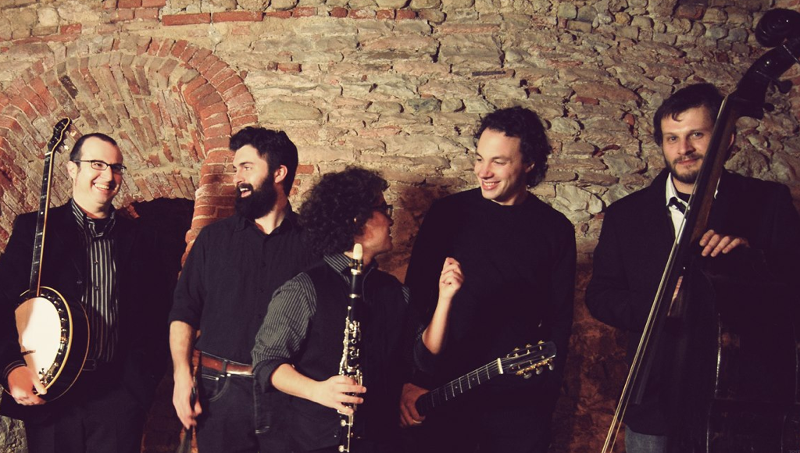Debates, exhibitions, shows and concerts

2016
Program
Events Schedule
Events per day
Consideration of the future of educational services for early childhood implies confronting the challenges of promoting innovation and educational quality. Over forty years from the issuance of the law 1044 of 1971 establishing nurseries conceived of as “a social service of public interest”, which ingredients can be considered essential to promote the quality of educational services for children aged zero to six years? This subject seems crucial at this stage in which the conjunction between the containment of public expenditure and the need to provide nursing services to enable parents to be active in the labor market is likely to go to the expense of the services quality promotion. Based on these ideas, the session aims to address three main questions:
– What does it mean to set a quality educational service for young children today?
– In which way the regulatory provisions governing the quality of educational services for early childhood have changed, even with respect to the dissemination of “innovative” and/or contracted services?
– Which scenarios are likely to be opened with respect to quality for the reform of educational services for children aged 0 to 6?
Emmanuele Pavolini, OCIS and Università degli Studi di Macerata
Speakers:
– Fabiola Casarini, Scientific Director of Centro di apprendimento e ricerca TICE
– Margarita León, Universitat Autònoma de Barcelona
– Claudia Giudici, President of Reggio Children
– Francesca Puglisi, Senator of the Italian Republic and member of the Parliamentary Commission on Children and Youth
– Nice Terzi, Childhood and Infant Schools Group
Educational services for early childhood represent a key aspect of the policies aimed at promoting the reconciliation between care responsibilities and participation in the labor market. Availability of seats, accessibility in terms of costs, hourly organization and quality, however, are essential determinants of services that vary significantly from country to country, greatly affecting their effectiveness in responding to the needs of reconciliation between work and family. With respect to educational services for children aged from 0 to 6 years, Italy does not offer a very encouraging picture. As it is well known, while with respect to preschool high levels of coverage and a significant territorial homogeneity has been achieved, our country is still suffering from serious delays and remarkable geographical differences in providing services for children under three years of age. This session offers a reflection on the role of services for early childhood as conciliation tools, highlighting both the critical issues and the potentialities in the Italian context in a comparative perspective. In the discussion three main issues will be addressed:
– What does the empirical evidence regarding the impact of services for early childhood on participation in the labor market show?
– Which aspects promote the effectiveness of services for early childhood as conciliation tools?
– What are the main problems in the current context and what prospects are opened for the reform of Educational services for children aged from 0 to 6?
Screening of the documentary video “Social Cohesion Tour 2016”
Ilaria Madama, OCIS and Università degli Studi di Milano
Speakers:
– Manuela Naldini, Università degli Studi di Torino
– Stefano Neri, Università degli Studi di Milano
– Gino Passarini, Director of Family, Children and Youth Policies Dept., Emilia Romagna Region
– Emmanuele Pavolini, Università degli Studi di Macerata
– Luciana Saccone, Department for Family Policies, MIUR
Facilitator: Rossella Sobrero, President of Koinètica and Università degli Studi di Milano
“The world beyond our immediate experience reaches us almost entirely on screens.” Roger Silverstone
Faced with the increasingly close connection and interdependence between everyday life and use of the media, reflection and action in the educational field having as their main purpose the raising of the level of awareness of the younger generation become fundamental. The conscious use of the media is nowadays an inescapable element for realizing a full and real democratic citizenship, not unlike from what happened with the conquest of mass literacy.
Dealing with media, and particularly with television and Internet, is today the most important thing for those who hold an educational role and the most direct route for those seeking the explanation of the profound changes that have arisen in recent years in our society. Indeed there is no aspect of reality that might continue to exist outside of the media and this trend is amplified by the increasing pervasiveness of mobile devices in receiving and creating media content.
Therefore, media education holds a pivotal role for the future, being the most effective tool enabling citizens to know and defend their rights, and become active agents of communication rather than passive target of its messages and technologies.
Experts who will talk during this debate will enable the public to understand the strategic importance of media education for a future of democratic and sustainable social cohabitation. The subjects which will be at the center of the session will cover the main aspects of the relationship between education and the media: the demands from below and the role of the institutions; the behavior of adolescents in the digital environment; the characteristics of an effective education to the media; the making of media education as a corporate social responsibility.
Lorella Zanardo, writer, documentary director and activist
Speakers:
– Francesca Borgonovi, OECD
– Cesare Cantù, Director of “Nuovi Occhi per i Media” project
– Matteo Lancini, President of Minotauro Foundation
– Daniela Mori, President of Unicoop Firenze
– Giovanna Boda, General Director of the Department for Students’ integration and participation, MIUR (invited)
Facilitator: Raffaele Barberio, Director of Key4biz
Second generations to whom? Citizenship, integration and youth participation policies
The data and research show that the feeling of exclusion and discrimination is common among young second-generation residents in EU countries. With this label, which is often unbearable for them, we mean to refer to young people born in the country where their parents emigrated. They haven’t actually experienced the migration and for them the country they live in is their country in every way. The feeling of exclusion is real even where these young people are citizens in all respects, as in France, Belgium and Holland, pointing out that the formal grant of citizenship is not a sufficient guarantee of integration, although being certainly one of the most important requirements. In Italy, the issue of citizenship is particularly hot and it was discussed on several occasions without reaching a still point and without the automatic granting of a national title to those born on Italian soil. The main issues planned to be discussed in this session concern the educational integration of young second generations – with special attention to the school-family link – to school dropouts and the high concentration of foreign young people in vocational schools. Crucial points are also the possibility of social mobility of these latter compared to their parents’ chances, the relationship with the labor market, as well as their participation in the social and political life of their country. All elements which are fundamental to bridge the ethnic gap they suffer from.
Screening of the documentary “Social Cohesion Tour 2016”
Introduces:
Francesca Campomori, OCIS and Università Cà Foscari di Venezia
Speakers:
– Serena Foracchia, Councillor for International Relations, Reggio Emilia Municipality
– Randa Ghazy, journalist and writer
– Filippo Miraglia, Vice President and former director of Migration dept., ARCI
– Roberta Ricucci, Università degli Studi di Torino
Facilitator: Gad Lerner
(*) The event is valid for school credits of the Order of Social Workers. For the recognition of credits you need to register at the info point.
CULTURAL CONTAMINATIONS
Public talk to introduce the book “La Frontiera” with the author Alessandro Leogrande
There is an imaginary line, yet very real, a not healed wound, a place for everyone and no one of which everyone, invisibly, is part: it is the border that separates and unites the North of the world – democratic, liberal and civilized – with the South – poor, bitten by war, backward and undemocratic. It is on the edge of this border that the Great Game of the contemporary world is played. This threshold is elusive, indefinable, non-material: writing comes close to it via approximations, attempts, advancing in an explored environment, where migrations and rejections occur, where it is fought a battle to live or die. Leogrande leads us on board of the ship Mare Nostrum operation and fish the words from the seabed in which they got stuck and hidden.

Dialogues and concert with Alaa Arsheedand and Adovabadan jazz band
Alaa Arsheed is 30 years old and has a passport of a country that no longer exists. Born in Suwayda, Syria, he’ one of that generation who, in 2011, tried to imagine a more free world, siding against the regime that today has destroyed his land. Alaa is a wonderful violinist. The strings of his violin – and a tweet – saved him, and today he travels around Italy to tell his story as a refugee, fleeing from his country and painfully far away from friends and family left in Syria. He does this with words – often moved, always moving – and with the nostalgic and touching notes of his violin. “I want to tell the beauty of Syria, a land full of art, artists, inspiration … now broken by violence.” Alaa is also one of the protagonists of “Torn”, the film of Alessandro Gassman produced in collaboration with the United Nations High Commissioner for Refugees (UNHCR). Alaa will be in concert at the SCD along with Adovabadan Jazz Band. Before the music, he will tell us his story.
Alaa Arsheed – violin
Michele Uliana – clarinet
Isaac de Martin – guitar
Mauro Brunato – banjo
Nicola Barbon – bass
Remo Straforini – drums
Endi MC Moretto – voice
